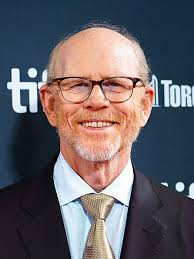The Remarkable Journey of Ron Howard: From Child Star to Filmmaking Legend

Introduction
Ron Howard is a name synonymous with cinematic excellence in Hollywood. As an accomplished actor and director, his contributions have shaped the landscape of film and television over several decades. Born on March 1, 1954, Howard began his career as a child actor, later transitioning into a directing role that has garnered him numerous accolades, including two Academy Awards. Understanding Howard’s impact on the film industry not only highlights his personal achievements but also sheds light on the evolving nature of Hollywood itself.
Early Career
Howard’s journey began at a young age, starring in the iconic television series “The Andy Griffith Show” from 1960 to 1968. This early exposure to the entertainment industry served as a foundation for his future career. After appearing in several films, including ‘American Graffiti’ (1973), directed by George Lucas, Howard made the successful leap from acting to directing with “Grand Theft Auto” in 1977. This debut marked the start of a prolific directing career.
Directorial Successes
Throughout the 1980s and 1990s, Howard directed numerous successful films that showcased his versatility. Notable works include “Cocoon” (1985), which earned him critical acclaim, and “A Beautiful Mind” (2001), which won four Academy Awards, including Best Director for Howard himself. His collaborations with renowned actors, such as Tom Hanks in films like “Apollo 13” (1995) and “The Da Vinci Code” (2006), further solidified his status as a leading filmmaker. Howard’s ability to blend compelling storytelling with emotional depth resonates with audiences worldwide.
Recent Work and Contributions
In recent years, Howard has continued to make his mark in the industry. His direction of the “Solo: A Star Wars Story” (2018) displayed his adeptness in handling large-scale productions. Additionally, he has produced and directed several documentaries, including “Pavarotti” (2019), showcasing his range beyond fictional storytelling. Howard’s passion for storytelling extends into television with his work as an executive producer on the acclaimed series “Empire.”
Conclusion
Ron Howard’s legacy as a filmmaker is profound. His career, which spans over six decades, illustrates a unique evolution within the entertainment industry. As he continues to inspire upcoming generations of filmmakers, Howard’s emphasis on character-driven narratives and attention to detail will likely influence cinematic storytelling for years to come. For viewers and aspiring artists alike, understanding Howard’s contributions provides insight into the resilience and creativity required to succeed in an ever-changing industry.
You may also like

The Enduring Legacy of Sylvester Stallone

Celebrating Jason Donovan: From Neighbours to Musical Stardom
